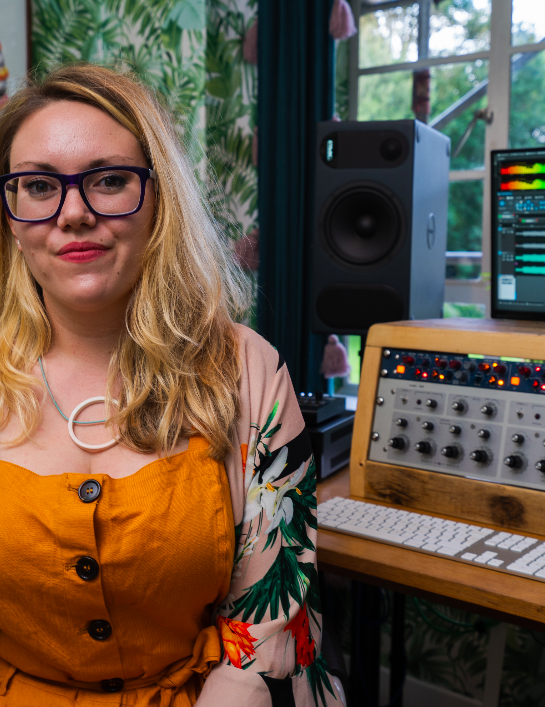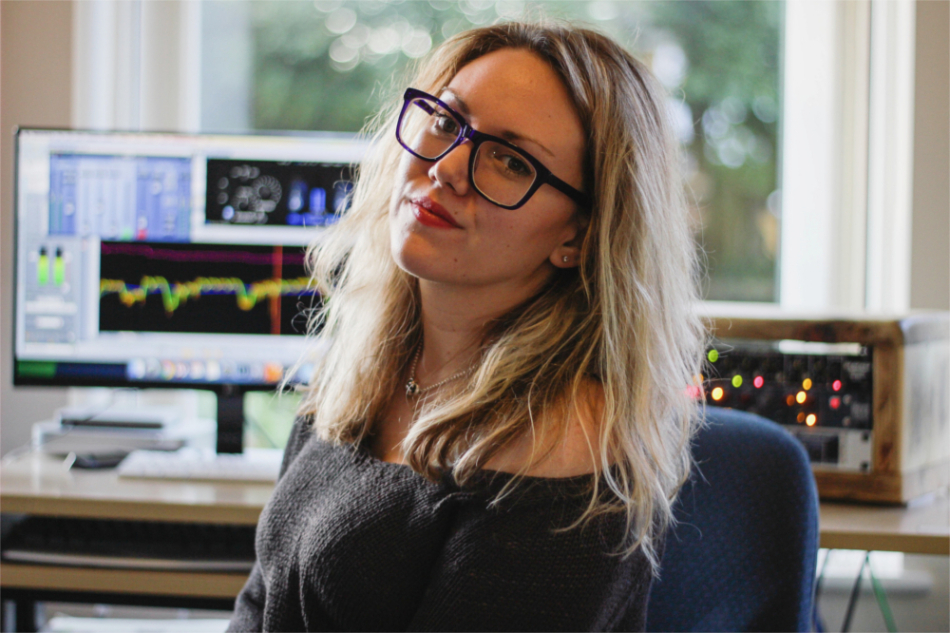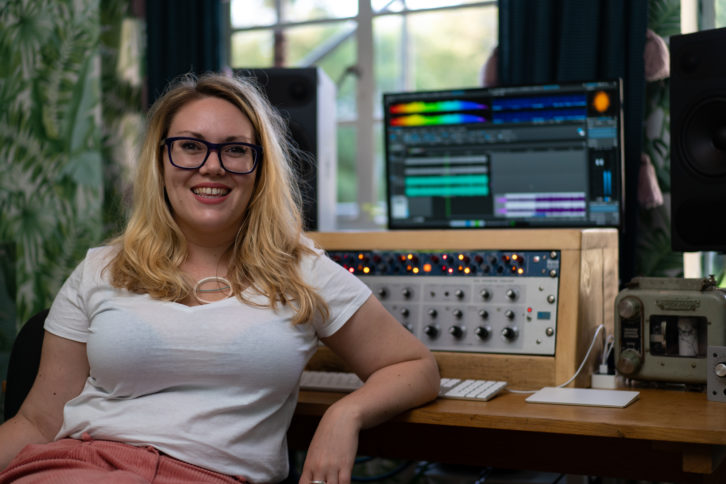Katie Tavini was one of only a few women nominated at this year’s MPG Awards, but is excited to let her work, not her gender, do the talking.
“I've only done two filmed interviews ever, and the first one was a fucking car crash,” admits an upbeat Katie Tavini as we set up for her interview about being nominated for MPG’s Mastering Engineer Of The Year.
“After that first one, the people interviewing me were like, ‘I don't see why women-only things have to be a thing,’ and then they went on a big anti-feminist rant. It doesn't matter that it's opportunities, it's that no one was giving [women] them!”
Women being fairly represented at industry events for the arts is a subject fraught with tension, with high profile female actors drawing attention to the lack of female nominees at the Oscars and BAFTA ceremonies in recent years (shout out to Natalie Portman for her all-male nominees dig), while it was also noted that there were no female nominees in the producer categories at the Grammy Awards this year. Is it just that men happened to be better in their respective categories on those occasions; are women not as drawn to these lines of work? Or are women not given the same opportunities?
This year, Tavini was one of three women nominated across the MPG Award engineering and production categories, and has her own thoughts on the matter:
“I go to mixed events and people think I'm there as someone's girlfriend,” she says, shaking her head. “It’s tough because there are a lot of amazing women in this industry, but there aren’t usually that many women nominated in the categories. But it goes in peaks and troughs: one year you'll have loads of women nominated, like a few years ago whenso many women won awards, and it was really amazing. This year, I guess people have just got their heads down and are cracking on with work. When there's such a huge divide, you're always going to have a bit of a gap there. And because there's so many more men than women in the industry, if women were to get shortlisted every year, they'd be the same ones!”
Tavini acknowledges that it’s an incredible opportunity to be recognised for an award, but that it should be for good quality work, regardless of gender:
“I don't think any of the women that I know want to be known for being a woman in the industry – they want to be known for being an amazing producer, mix engineer or recording engineer,” she clarifies. “There is such an emphasis on gender and music, but until things are a bit more equal, that's always going to be the case.”
Fascinated by sound from a young age, Tavini remembers listening to her dad’s vinyl collection and being intrigued by the intricacies of a stereo mix.
“I noticed that some different sounds were coming out of each speaker, and I was like, ‘what the fuck? That's so cool! I want to do that’. Obviously, I didn't know what it was at the time, but as I got older I took more of an interest in studying audio. I nerded out! I used to borrow books from the library that had massive lists of all of the Midi notes and numbers, and I used to sit in my bedroom making music.”


